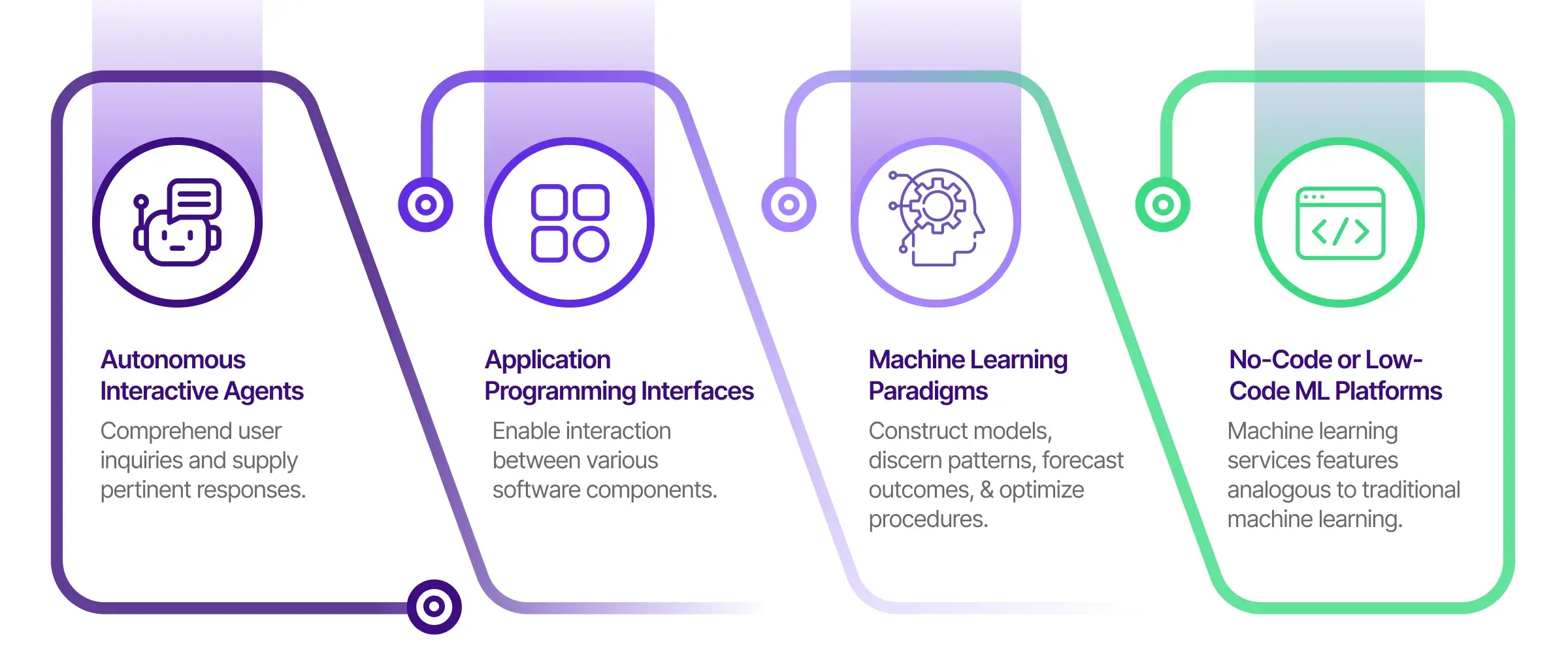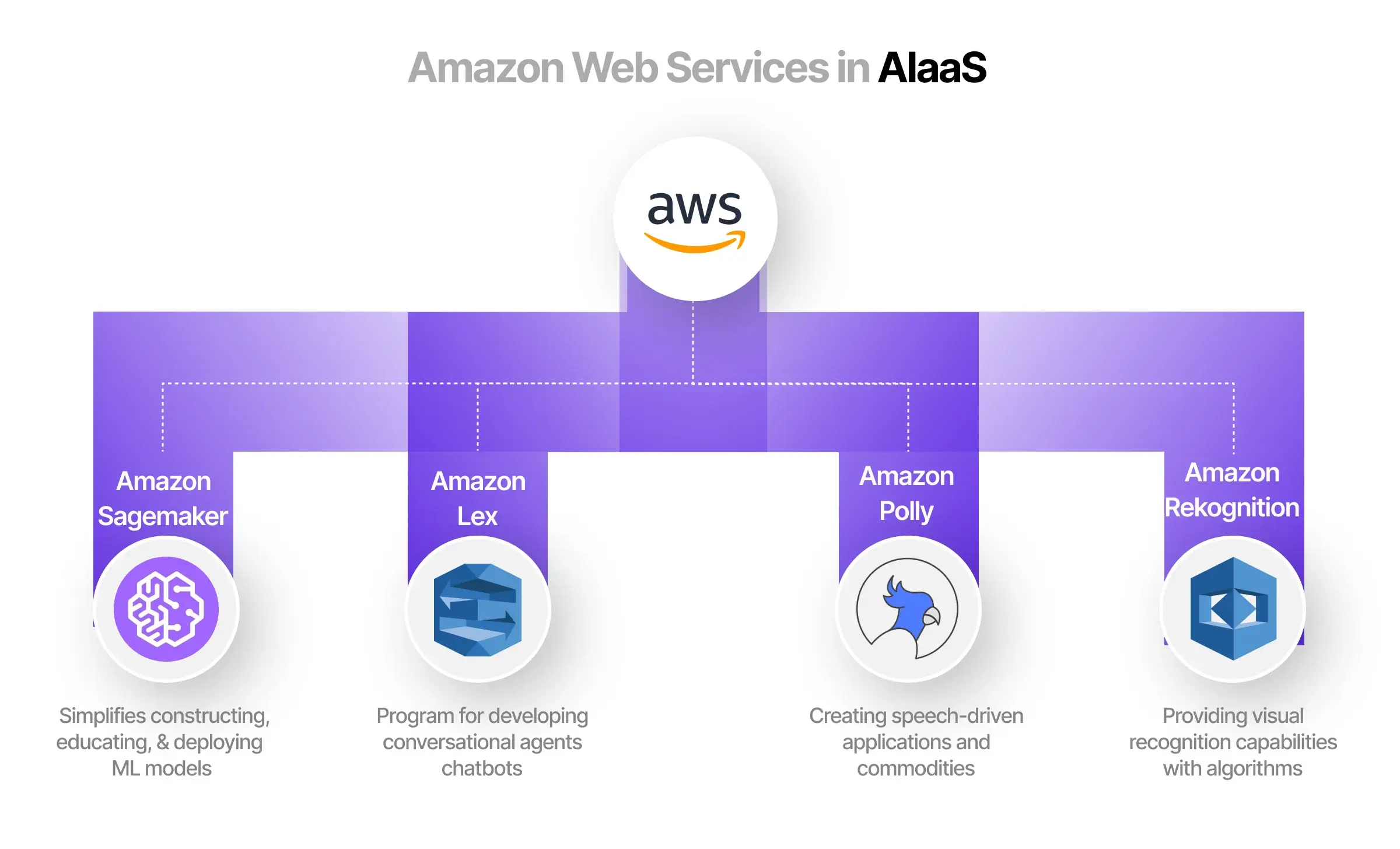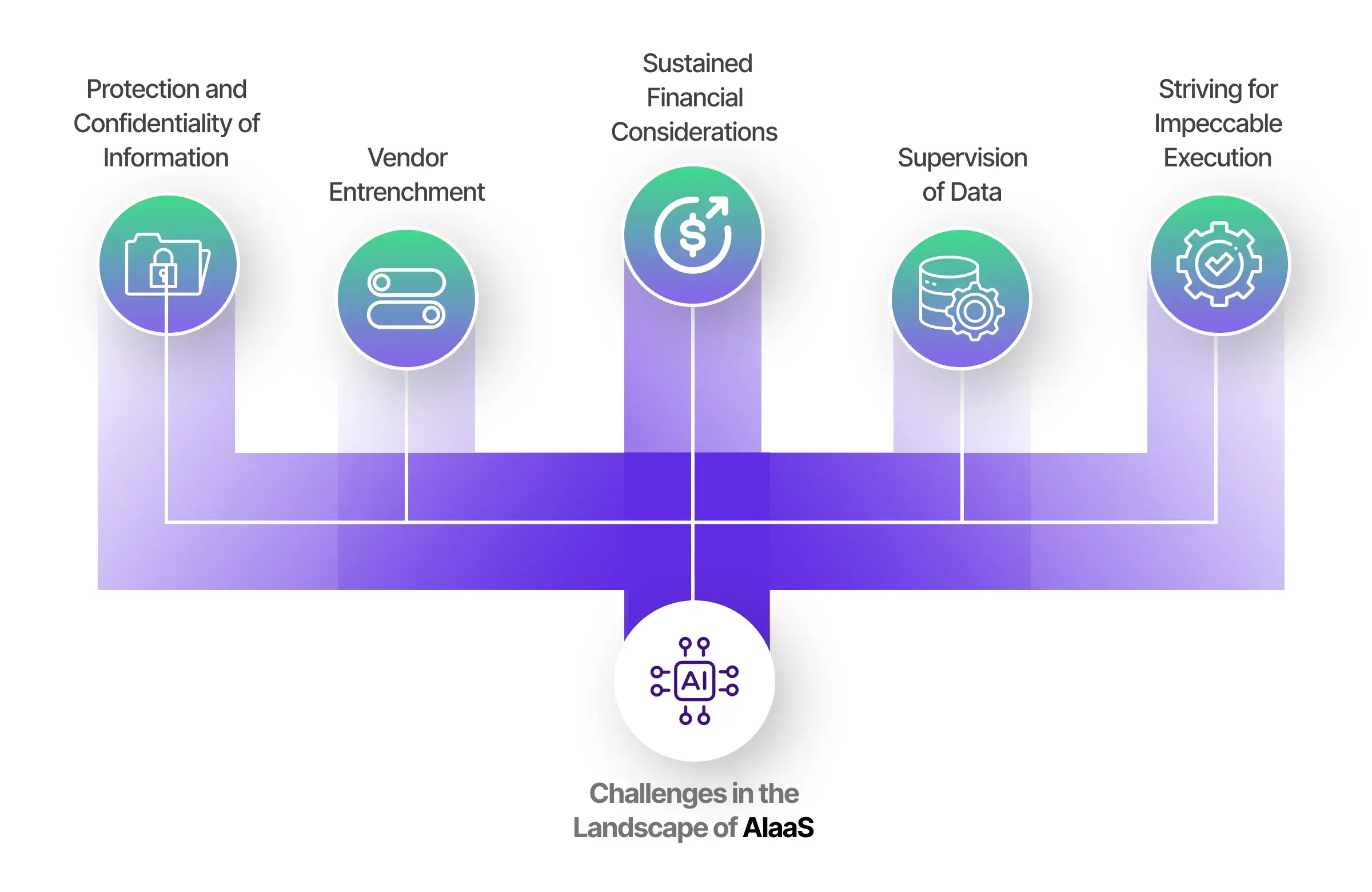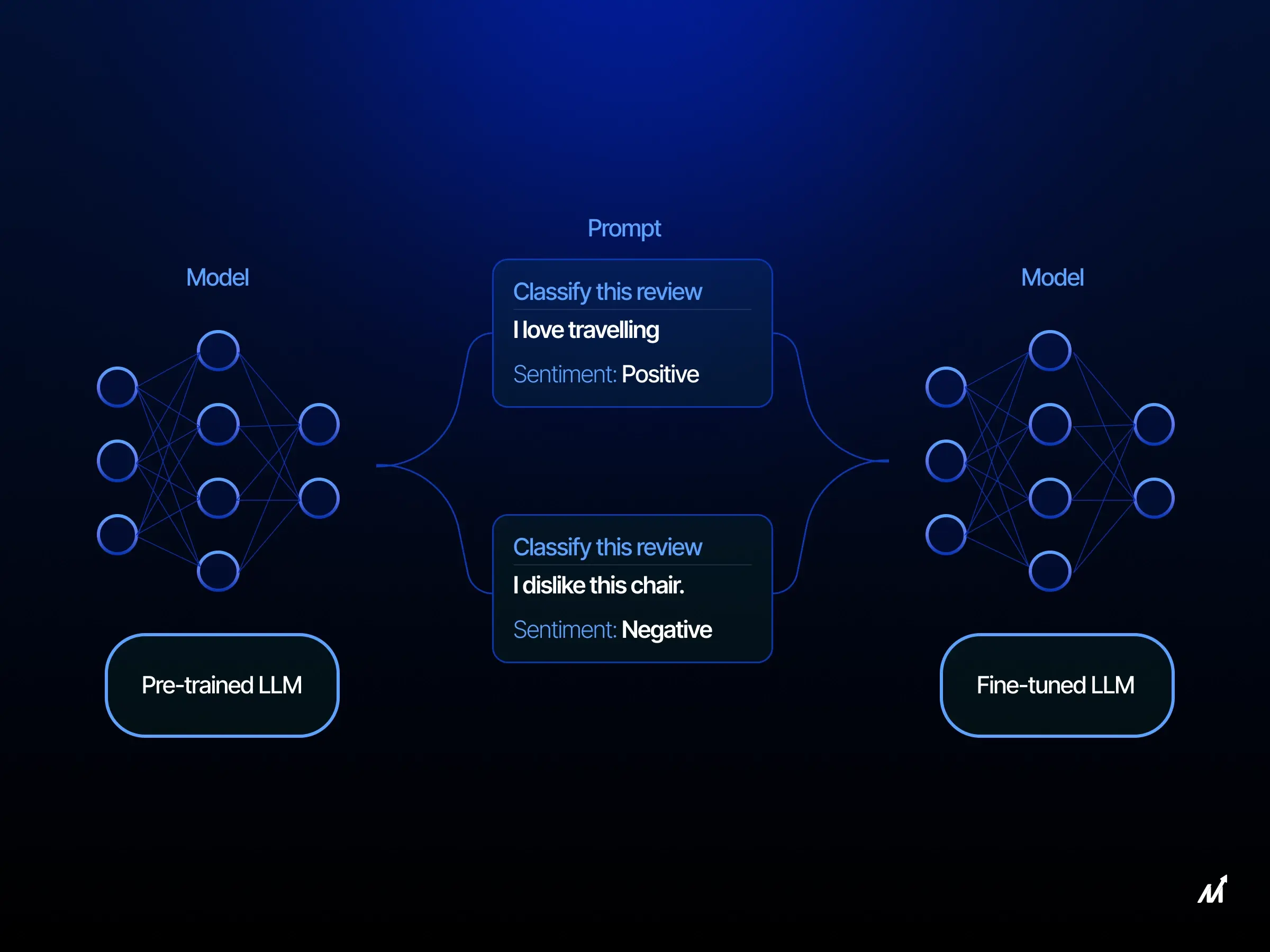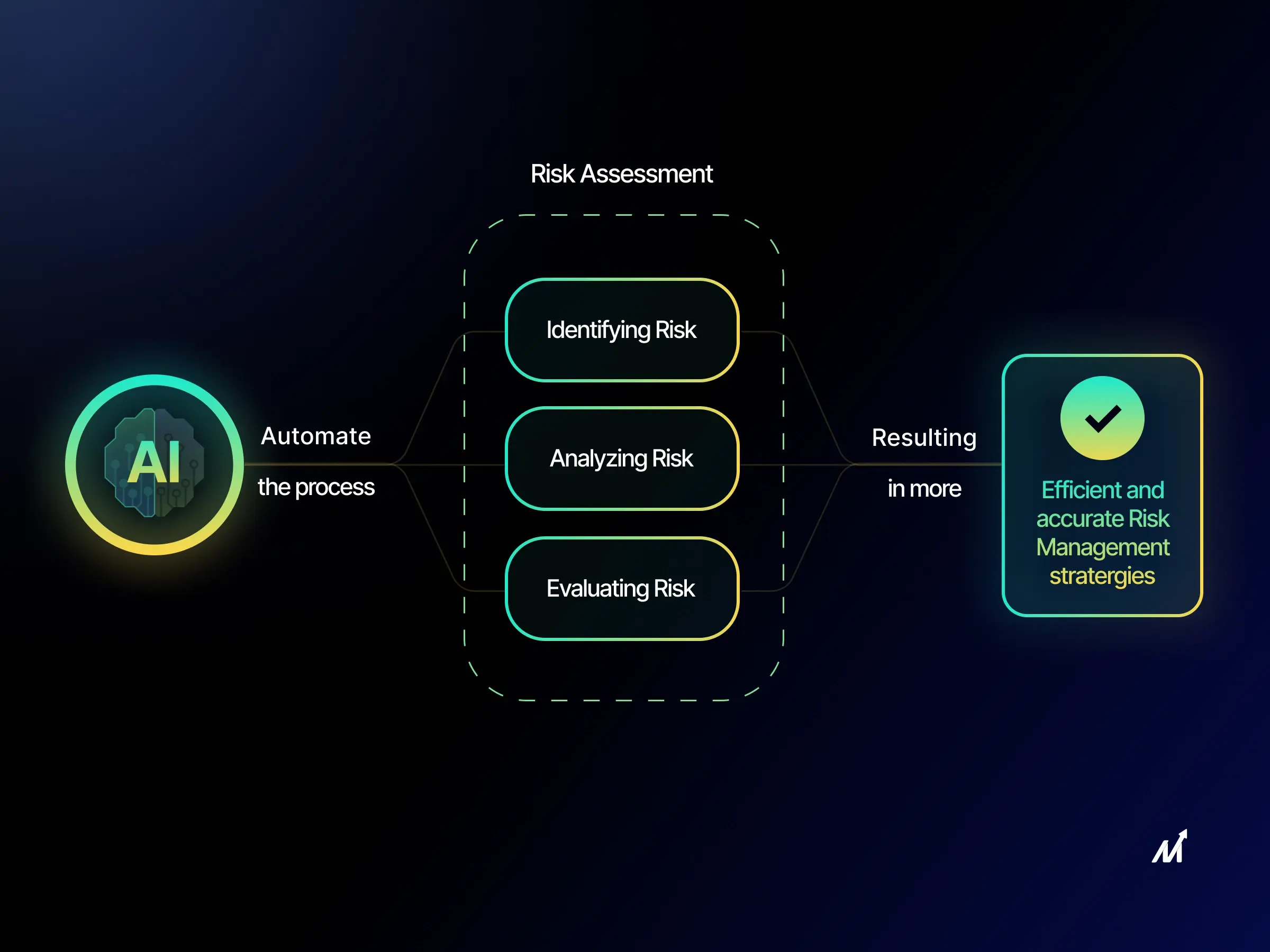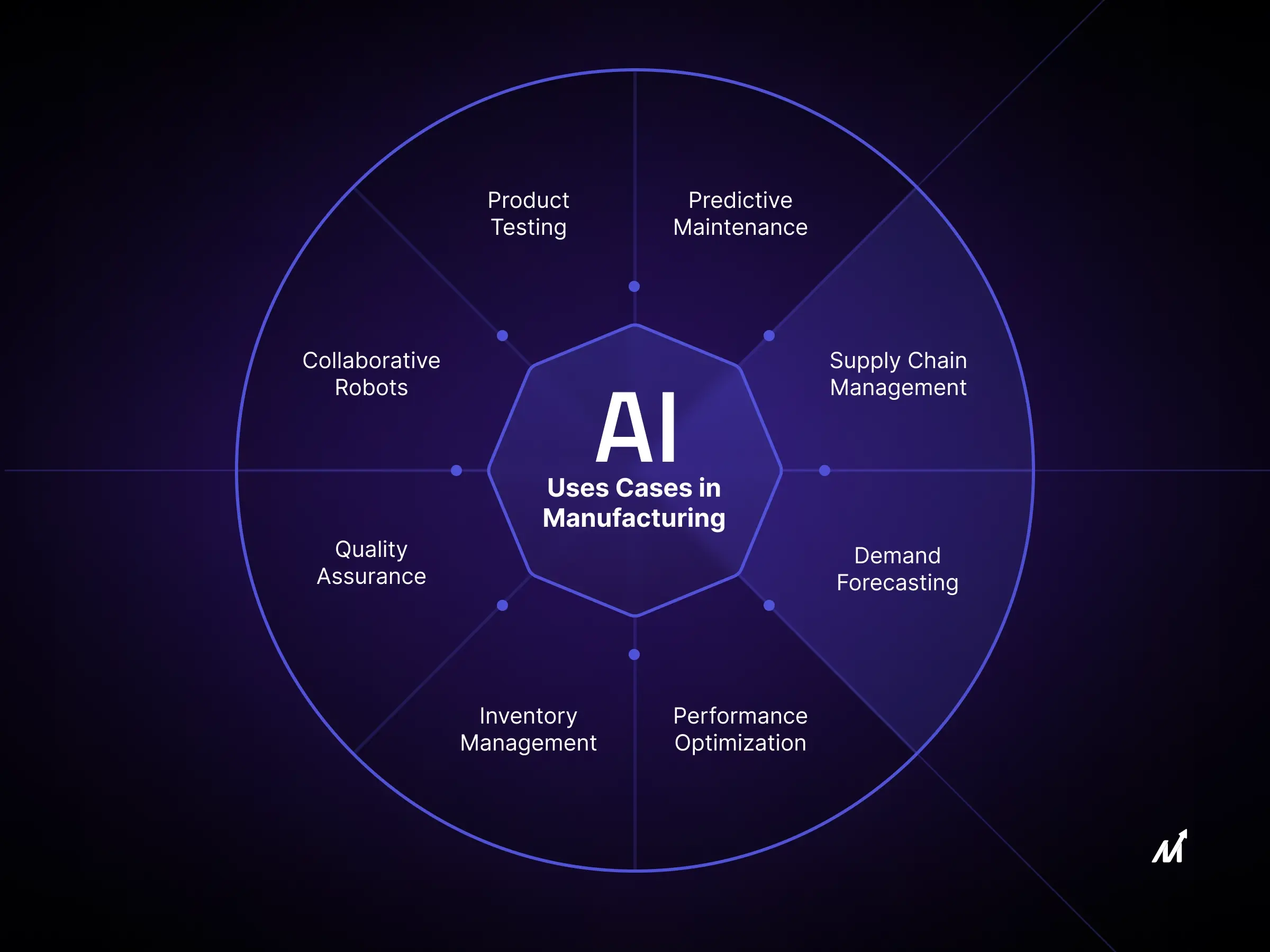Artificial intelligence (AI) is opening the way for unique developments and will be the driving force behind improved company procedures or the upcoming era of customer interactions. Nevertheless, it is clear that business leaders want to use AI’s capabilities to gain a competitive edge as the AI era develops and massive informational repositories become accessible. A remarkable finding is that AI as a Service (AIaaS), a smart fusion of the well-known SaaS business model with the substantial capabilities provided by AI, is set to increase operational efficiency at a financially feasible and sustainable rate.
Application developers may use the enormous potential of cloud-integrated solutions thanks to AIaaS. Are you ready to advance with AIaaS? This thorough manual on AI as a Service has carefully compiled important aspects.
What is AI as a Service (AIaaS)?
The phrase “Artificial Intelligence as a Service,” or “AIaaS,” describes various AI capabilities usually provided through APIs. Third parties are supplying these tools through generally available methods. Businesses may now embrace and utilize AI technology thanks to AIaaS without incurring significant costs or assuming a lot of risk.
The following issues have undoubtedly raised the price of AI solution implementations significantly in the past:
- Massive, pricey equipment
- There is a shortage of developers, which raises the demand for high salaries.
- The absence of suitable business data for research and analytical purposes
AI-as-a-The scenario has changed because of service, which has increased accessibility and allowed businesses to collect and store an infinite quantity of data.
Modern machine learning (ML) and AI vendor platforms provide a wide choice of models, ai infrastructure, and tailoring solutions to a company’s AI model requirements. An institution must balance costs and attributes to find the best match.
Additionally, notable Machine learning companies and AI cloud providers like Amazon Machine Learning, Microsoft Cognitive Services, and Google Cloud Machine Learning increase the range of potential answers for business data requirements.
Companies now have the wonderful opportunity to test algorithms and services from several suppliers, making it easier to evaluate and identify what works best for their business and make scaling choices.
AI as a Service (AIaaS) Facts
To better understand the scaling landscape, have a look at these fascinating numbers:
- As per the International Data Corporation (IDC), global investment in artificial intelligence will increase from $50.1 billion in 2020 to more than double that of $110 billion by 2024.
- According to Technavio, industry experts predict that the global AI-as-a-Service (AIaaS) market will expand by $14.7 billion between 2021 and 2025.
Furthermore, various sources, including significant businesses, are behind these sizable investments. Recent research from Flexera highlights the widespread application of AI by showing:
- Currently, 28% of businesses are looking at AI/ML potential.
- 46% of businesses are either already testing AI/ML or have plans to do so.
To summarize, the emergence of AIaaS ushers in a new age for companies of all sizes, providing never-before-seen prospects for innovation, scaling, and growth in a world market that is becoming increasingly competitive. Industries from banking to sports may strategically place themselves at the cutting edge of technological progress and take advantage of the enormous growth anticipated in this important industry by utilizing the wide range of tools and platforms that are already available.
Categories of AI as a Service (AIaaS)
In the landscape of AI offerings, many solutions are available, tailored to suit the unique demands of diverse business environments. A strategic approach involves identifying the challenges and implementing solutions that facilitate seamless integration without necessitating profound prior experience in AIaaS. Here’s an examination of some prevalent AIaaS configurations.
1. Autonomous Interactive Agents (Chatbots)
Creating a thriving chatbot demands substantial engineering effort. While a poorly designed interface can fail, a sophisticated chatbot enhanced with AI algorithms can mimic human discourse. By harmonizing Natural Language Processing (NLP) and Machine Learning (ML) capabilities, it can comprehend user inquiries and supply pertinent responses.
(Learn more about PEFT for LLM here.)
In the present climate, these autonomous agents are revolutionizing customer care by diminishing initial response times and enhancing user satisfaction. Automation aids in eliminating mundane tasks, liberating human agents to concentrate on more intricate challenges.
For instance, InPost, Europe’s most rapidly expanding parcel enterprise, automates an astounding 92% of its numerous annual customer interactions via chatbot utilization.
Another noteworthy instance is Microsoft’s XiaoIce, a leading-edge AI chatbot, achieving a $1B valuation in 2021, further demonstrating the growing impact of chatbot technology.
2. Application Programming Interfaces (APIs) within AIaaS
AIaaS configurations extend enthralling APIs, serving as conduits for service interaction. By functioning as intermediaries, APIs enable interaction between various software components.
NLP-related APIs facilitate sentiment examination, entity extraction from texts, and more. Provided ‘as a service,’ these APIs can be swiftly adopted, with developers having to pen minimal code. API functionalities include:
-
Speech processing and visual recognition
-
Natural language comprehension
-
Knowledge diagramming
-
Emotion identification
-
Translation and search functions
3. Machine Learning (ML) Paradigms
ML and AI structures are prevalent instruments leveraged by developers to construct models, discern patterns in voluminous data, forecast outcomes, and optimize procedures.
Though often linked with expansive data sets, ML can be applied in various contexts since these frameworks enable the execution of machine learning tasks without a large data environment.
AIaaS simplifies the incorporation of ML technology, allowing the utilization of ready-made models or bespoke tools aligned with particular business objectives without requiring previous ML acumen.
4. No-Code or Low-Code ML Platforms
Comprehensive machine learning services furnish features analogous to traditional machine learning frameworks but absolve developers from fabricating their AI models. These AIaaS configurations encompass pre-fabricated models, personalized templates, and no-code interfaces.
Leading Firms Offering AI as a Service
1. Microsoft Azure
Exemplary AI offerings from one of the leading AI infrastructure companies Azure include:
-
Cognitive Functions: These enable the deployment of algorithms for unique tasks such as content regulation, identifying irregularities, and other complex functions.
-
Cognitive Search Mechanism: A feature of Azure AI for integrating AI-driven cloud search capabilities into various mobile and web platforms.
-
Azure Machine Learning (AML): This facility allows the creation, training, and implementation of machine learning models ranging from cloud to the edge, backing both pre-designed models and personalized AI solutions.
-
Automated Chat Interface: An on-demand scalable chatbot system without dedicated server management.
2. Amazon Web Service (AWS)
AI and machine learning offerings of AWS consist of:
-
Sagemaker: A comprehensive service that simplifies constructing, educating, and deploying machine learning models in a ready-for-production, hosted setting.
-
Lex: A platform for developing conversational agents chatbots, integrating them into existing or new applications. Moreover, Lex’s functionality covers voice recognition, natural language comprehension, and voice-to-text transformation.
-
Polly: A suite designed to assist in creating speech-driven applications and commodities. Polly’s technology converts written text into audible speech.
-
Rekognition: A set of services providing visual recognition capabilities with algorithms that can be either Amazon-curated or custom-tailored based on specific datasets.
3. Google Cloud
The AI services offered by Google Cloud encompass:
-
AI Platform: A robust system that equips developers with tools to construct, release, and oversee machine learning models on a grand scale.
-
AI Hub: A centrally hosted repository that facilitates immediate access to ready-to-implement AI elements, ranging from pre-set algorithms to comprehensive AI workflows.
-
Conversational AI Tools: Various utilities such as Text-to-Speech, Speech-to-Text, virtual assistants, and the Dialogflow framework are engineered to craft conversational interactions across diverse application devices.
Challenges in the Landscape of AI as a Service (AIaaS)
Here are some key challenges that businesses should take note of.
1. Protection and Confidentiality of Information
In the era marked by remote work, vigilant control over data consumption and safeguarding protocols has become paramount due to the global health crisis.
Crucial aspects, including compliance with data protection laws such as GDPR and CCPA and the cessation of the US/EU data privacy shield, mandate enterprises to exercise prudence in data handling.
In this context, deploying privacy-enhancing techniques like cryptography and data obscuring is a bulwark in preserving organizational information.
2. Vendor Entrenchment
Consider a situation where various APIs are engaged, each with disparate response structures. Though the transition might seem facile, the differences in response types and ever-changing APIs necessitate substantial effort.
Further complicating matters, comprehensive ML services or individual ML elements pose greater difficulty in tool-switching. Developers must acquaint themselves with new systems. This complexity leads to vendor entrenchment, compelling companies to grapple with the intricacies of migrating between competing solutions.
3. Supervision of Data
For firms operating in rigorously regulated sectors, constraining data accommodation in the cloud is crucial. Enterprises in fields like banking and healthcare may encounter constraints in employing AIaaS.
4. Sustained Financial Considerations
AIaaS mechanisms enable organizations to commence swiftly at a feasible expense. Nevertheless, the lasting fiscal burden may prove substantial. It becomes essential for corporations to balance immediate and enduring financial commitments before committing significant resources to AIaaS.
5. Striving for Impeccable Execution
An additional challenge emerges in AIaaS applications, which might not be devoid of flaws. The materialization of a smooth and triumphant transformation demands considerable exertion.
6. Legal responsibilities, Liabilities, and Policy Challenges
Artificial Intelligence as a Service (AIaaS) is revolutionizing businesses, but with this innovation comes a web of legal responsibilities and policy challenges. As AI becomes more integrated into services, the question of liability in cases of malfunction or misjudgment by AI systems becomes paramount. Who is responsible when an AI makes a flawed decision? This conundrum pushes the boundaries of traditional liability laws.
The legal landscape surrounding AIaaS is complex. Companies offering AI services must navigate the intricate interplay of intellectual property rights, data privacy laws, and contractual obligations. The GDPR in Europe, for instance, has set precedents in data protection and privacy, impacting AIaaS providers globally. Compliance with such regulations is not just about adherence but also about understanding the evolving nature of these laws as they try to keep pace with technological advancements.
Furthermore, there are policy challenges. Governments and regulatory bodies are grappling with creating frameworks that ensure responsible AI usage without stifling innovation. Ethical considerations, such as bias in AI algorithms and the potential for misuse, demand stringent policies and oversight mechanisms. The future of AIaaS hinges on balancing innovation with responsibility, requiring a collaborative effort from technologists, legal experts, and policymakers to navigate this uncharted territory effectively.
Advantages of AI as a Service (AIaaS)
1. Eliminating the Necessity for Advanced Technical Proficiencies
AIaaS democratizes AI, rendering it available to entities without a dedicated team of AI specialists. Implementing a no-code framework simplifies the process. Leading firms offering AIaaS usually alleviate the need for coding knowledge during integration. Daniel Newman, from Broadsuite Media Group, astutely observed in Forbes, “At a juncture marked by a scarcity of AI professionals and intensifying business rivalry, this emerges as a significant advantage.”
It’s pertinent to emphasize that AIaaS solutions vary in their complexity of integration, especially when interfacing with traditional legacy systems.
2. Swift Access to State-of-the-art Infrastructure
Historically, robust and agile GPUs were indispensable for effective AI and Machine Learning execution. However, most Small and Medium Enterprises (SMEs) lacked the capital and bandwidth to generate in-house applications.
In AI, the principle is clear: optimal task performance necessitates quality data. Customizable AIaaS paves the way to design task-specific models, leveraging most organizations’ vast data reservoirs.
3. Transparency Factor in AI as a Service
AIaaS enables AI technology adoption, minimizing unproductive labor and introducing appreciable transparency. As a result, it operates on a pay-per-usage scheme, as Machine Learning demands substantial computational prowess. The pricing largely revolves around usage.
Certain platforms also grant more authority over AI automation, incorporating Human in the Loop (HITL). This continuous feedback mechanism aims to attain independently what neither humans nor machines can achieve.
4. Applicability of AI as a Service
Let’s not mince words: many as-a-service platforms fail to meet their user-friendly promises. Although numerous AI options are open-sourced and modifiable, their installation and development can pose challenges. AIaaS, conversely, often stands ready to use. Process owners can deploy AI applications without specialized instruction.
End-to-end Machine Learning offerings, encompassing pre-fabricated and bespoke models, also feature drag-and-drop interfaces to curtail complexity. This remarkable aspect? Initiating an ML endeavor within mere hours, sans engineers.
5. Scalable AIaaS Solutions
Is it common for an expanding organization to receive fewer emails? It seems unlikely.
AIaaS is architected for growth. If models have been trained to filter information based on email importance or sentiment, channeling the appropriate emails to the relevant recipients, that’s a winning strategy.
AIaaS is ideal for handling operations demanding cognitive discernment but where the task doesn’t enhance value.
Trends Driving the AI as a Service Platforms Market
1. Cloud Computing Infrastructure Moving Forward Fast
It’s incredible how quickly technology has developed, especially considering how it’s influencing the AI Service Platforms (AIaaS) market. Among the well-known AI consulting companies advancing the development of stable, expandable platforms that serve AI applications are AWS, Microsoft Azure, and Google Cloud. Furthermore, these systems’ robust computing capacity, versatile storage, and rapid networking enable businesses of all sizes to use AI efficiently. A company no longer needs to invest much money in the initial setup. Now, everyone can gain from AI, regardless of the industry or size of your business. The continual fine-tuning of these services produces a virtuous circle where more innovation leads to more acceptance. In addition, from well-known juggernauts to nimble startups, businesses are adopting AIaaS to expedite everything from decision-making to research, and the results are seen across several industries.
2. A Rising Appetite for AI Solution
Almost all industries seem to have a rising demand for AI. Whether it’s to get an edge over the competition, enhance customer interactions, or expedite operations, AI is getting attention. AIaaS is fast taking over as the norm to give scalable and economical AI capabilities without the headache of having to construct everything from scratch. Such as healthcare, finance, retail, and transportation, many industries use AIaaS to improve and streamline their processes. Besides, in the healthcare industry, it helps anticipate patient outcomes, and in retail, it customizes the shopping experience. Consequently, the demand is growing as more businesses become aware of what AI is capable of, from fixing challenging problems to extracting precious insights from mounds of data.
3. Startups and Innovation – The Heartbeat of AI Growth
Startups are the technology’s lifeblood if artificial intelligence (AI) is transformative. New firms are opening up left and right to solve specific challenges encountered by the industry with fresh and creative solutions. In addition, many individuals focus on AIaaS platforms that provide the best functionality and address specific needs or industries. They also have the assurance they require to reach the market because they use resources from well-known cloud service providers. Furthermore, this deluge of ideas and applications promotes healthy rivalry, keeping the industry alive. Artificial intelligence as a sector is continuously innovating, resulting in additional alternatives, solutions, and an exciting ecosystem to watch as it changes.
Real World Example of AI as a Service (AIaaS)
1. Netflix’s Movie Magic
Have you ever wondered how Netflix seems to be able to predict your viewing preferences? That is AIaaS in action, doing its cinematic magic. Using cloud-hosted AI algorithms, Netflix searches through your watching history, likes, and dislikes. Similarly, it’s comparable to having a tech-savvy pal who keeps track of every movie you’ve seen and can predict what you’ll like next. Additionally, this program assists Netflix in making recommendations for episodes and movies that feel custom-made for you by evaluating data from millions of consumers. Tip your hat to AI the next time you find a new favorite series!
2. LinkedIn’s Networking Know-How
Have you ever wondered how LinkedIn always knows who you should connect with? Similarly, like a digital networking expert, AIaaS is the key ingredient. Using cloud-hosted AI algorithms, LinkedIn analyzes your profile, employment history, abilities, and relationships. Then, it appears out of nowhere with recommendations for individuals in your industry or comparable ones. It’s like entering a room where all the ideal business people you’d like to network with at a conference are there. Therefore, thanks to the AI platform, the next great opportunity or cooperation may be just a link away.
How can Markovate Assist with AI as a Service?
The promise of AIaaS has the business world in awe, and proper implementation is essential to reaping their full rewards. Moreover, AI as a service is on track to outperform all predictions and present a chance for cooperation to reach unparalleled efficiency.
It is undeniable that Markovate’s team of AI expert has the skills necessary to create outstanding digital storytelling via AI solution and have received multiple awards in the generative AI field. Consequently, the logical progression is to start a conversation.
The Future of AI as a Service (AIaaS)
With so much nice stuff luring individuals who want to be the first to experience new technologies, AIaaS is shooting off like a rocket. But let’s be honest, not everything is peaches and rainbows; there are many things that may use improvement.
Anyone who has ever constructed something understands that there will inevitably be setbacks and difficulties along the road, and AIaaS is no exception. The broader picture is that it’s not simply another “as a service” idea. This is significant and will alter the AI infrastructure ecosystem.
Why? Because it makes something that was previously exclusively available to a select few available to everyone. It’s like giving someone the keys to a powerful vehicle and telling them, “Go on, take it for a spin.” Eventually, it’s exciting that more and more companies can benefit from the AI infrastructure stack and ML’s brilliance.
FAQs
1. What’s the Big Deal with AI as a Service (AIaaS), and How Can I Use It?
Think of AIaaS as renting a genius computer brain for your business. All the smart, cutting-edge AI and ML tools are hosted online, so you don’t have to be a tech wizard to use them. Whether predicting what your customers might want next or figuring out trends in heaps of data, AIaaS can do it. It’s like having a super-smart assistant that’s always there to help without the hassle of creating everything yourself.
2. I Run a Small Business. Is AIaaS Just for the Big Players?
Not at all! AIaaS isn’t some exclusive club for massive companies. It’s for everyone, no matter the size of your business. Thus, imagine being able to peek into the future to see what might be a hit with your customers or have a tool that can chat with customers any time of the day. It’s not about replacing humans; it’s about giving you the tools to do more with what you have. Therefore, you don’t need deep pockets or a tech expert on your staff to make it happen. Chat with our AI consultants to learn more.
3. What Should I Watch Out For Before Opting for AIaaS?
Like anything that sounds too good to be true, there are some things to watch. Security is a big one – you’ll want to ensure your data safety. Not all AIaaS providers are created equal, so you’ll need to find one that fits your needs and doesn’t break the bank. Integration might sound fancy, but it’s just about ensuring AIaaS plays nicely with your existing systems. It might take some shopping around and asking the right questions, but the benefits can be huge if you get it right.


